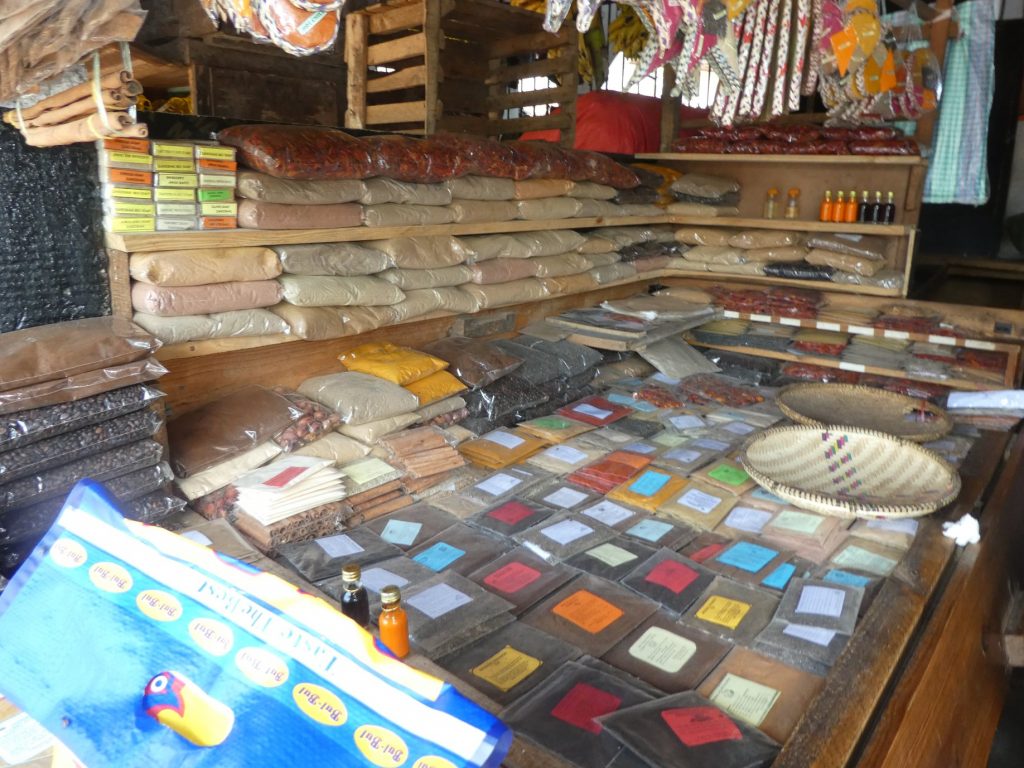The Spice Wars Part Ten – The Architect
February 18, 2022The Spice Wars Part Twelve – The Age of Empire
February 19, 2022
By Satish Sekar © Satish Sekar (January 23rd 2022)
Monopoly
The Dutch East India Company (DEIC) would not settle for anything less that a monopoly as that meant control of the lucrative spice trade. The Banda Islands (near Java) were at that time the only place in the world that grew nutmeg. It and mace were therefore lucrative commodities that attracted the desire and greed of Europeans for a monopoly. The Portuguese had tried and failed in the 16th Century. The English had a foothold, but the Dutch were stronger in their pursuit. They would settle for nothing less.
Equally, the Banda Islanders were determined not to give them a monopoly. They knew full well that free trading suited them better. They could play competitors off against each other and get better prices. The first decade of the 17th Century involved skirmishes and negotiations and demands that could not be met. The Dutch demands were based on earlier negotiations claiming agreement for a monopoly on the trade had been agreed. Yet the coveted monopoly on the spice trade remained elusive. On May 22nd 1609 Bandanese officials lured Dutch negotiators into an ambush and massacred them (see The Spice Wars Part Ten – The Architect at https://fittedin.org/fittedinwp/2022/02/18/the-spice-wars-part-ten-the-architect/). Among the few to escape the slaughter was Jan Pieterszoon Coen. Clearly, it would not endear the Bandanese to Coen and https://fittedin.org/fittedinwp/2022/02/18/the-spice-wars-part-ten-the-architect/would have contributed to his belligerent attitude towards them.
This massacre served as the justification for the Dutch to resort to force. This was after retaliatory attacks had punished the Bandanese by August 1609. The Banda Wars had begun and would last over a decade. It started with a massacre and ended with two massacres, genocide, slavery and transportation and a Dutch monopoly on the nutmeg trade.
The Brouwer Route and its Consequences
The discovery of the Brouwer Route was of vital importance, even though it took the best part of a decade for the Dutch East India Company (DEIC) to realise its importance and utilise it. In 1617 the DEIC ordered the route to be used in all travel to the East Indies. The question was how would the Dutch use their advantage?
The hawkish Coen was clear, might is right, no matter what casualties it caused to others. Having survived the massacre of May 22nd 1609, he had no qualms repaying the brutality with far greater savagery. The Bandanese would pay dearly for the events of May 1609, but Coen’s methods would have greater implications.
While some favoured negotiation Coen was determined to force the Banda Islanders to submit to his terms through force. And he had the backing that he needed to force through his agenda. Coen wanted to exercise absolute power over any and all enemies. It included the English who had a base in the Banda Islands.
Anglo-Dutch Rivalry
The English developed a presence on Ai and Run, islands near to the Banda Islands. They established trading posts there and protected them. This was a major nuisance to Dutch ambitions as it enabled the English to trade directly with the Banda Islanders. They offered better terms than the Dutch, which naturally frustrated Dutch attempts to secure a monopoly over the lucrative nutmeg trade.
Tensions increased. The Dutch built a fort on Banda Neira despite Bandanese objections. The fort enabled defence of their position and aggression from it. In May 1615 the Dutch, aided by Japanese mercenaries, attacked Ai, but the English retreated to Run, regrouped, and recaptured Ai that same night. The Banda Islanders appealed to the English for protection against the Dutch, but in April 1616 the Dutch attacked again, eventually capturing Ai when the English had no ammunition left to fight. Their reprisals against Banda Islanders were cruel – the intention being to punish resistance and deter it. The harsh terms of trade agreements the Dutch imposed worked temporarily but it didn’t last. With Ai taken trading opportunities outside the monopoly the Dutch were imposing became more and more limited, but the island of Run provided an opportunity for resistance. Nathaniel Courthorpe arrived with depleted forces, but with local assistance held off the Dutch for four years. He was killed on October 20th 1620. The end of the Spice Wars was approaching – war crimes and genocide would decide it a few months later.
